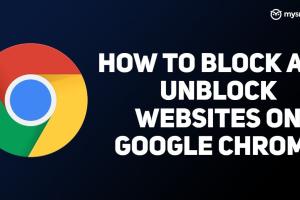Unblock Websites Easily: A Comprehensive Guide for Your School, Home, or Work

-
Quick Links:
- Introduction
- Why Websites Are Blocked
- Methods to Unblock Websites
- Case Studies and Examples
- Expert Insights
- Step-by-Step Guides
- FAQs
Introduction
In today's digital world, accessing information is vital. However, many institutions, such as schools and workplaces, implement restrictions on certain websites. This can lead to frustration for students and employees who need access to these resources for learning or productivity. In this guide, we will explore effective methods for unblocking websites at school, home, or work, ensuring you can access the content you need.
Why Websites Are Blocked
Understanding the reasons behind website blocking is essential. Here are some common reasons:
- Security Concerns: Organizations often block sites that may contain malware or phishing attempts.
- Productivity Issues: Employers might restrict access to social media or entertainment sites to enhance productivity.
- Age Restrictions: Schools and libraries may block adult content or sites deemed inappropriate for students.
- Bandwidth Management: Some websites consume a lot of bandwidth, leading to restrictions to ensure fair use.
Methods to Unblock Websites
Now that we understand the reasons for blocking websites, let's delve into effective methods for bypassing these restrictions.
Using a VPN
A Virtual Private Network (VPN) encrypts your internet connection and routes it through a server in another location. This can effectively unblock websites.
- Choose a reputable VPN provider.
- Install the VPN application on your device.
- Connect to a server outside your network.
- Access the blocked website!
Using Proxy Servers
A proxy server acts as an intermediary between your device and the internet. It can be used to access blocked websites.
- Find a reliable proxy website.
- Enter the URL of the blocked site.
- Browse anonymously!
Changing DNS Settings
Changing your DNS server to a public one like Google DNS or OpenDNS can sometimes bypass restrictions.
- Go to your network settings.
- Change the DNS settings to:
- Google DNS: 8.8.8.8 and 8.8.4.4
- OpenDNS: 208.67.222.222 and 208.67.220.220
- Save changes and restart your connection.
Using Browser Extensions
There are various browser extensions that can help you access blocked websites.
- HTTPS Everywhere: Encrypts your communication with many major websites.
- Hola Free VPN: A free VPN service that can help you access blocked content.
- FoxProxy: A proxy switcher for Firefox.
Using Mobile Hotspot
If all else fails, you can use your mobile data as a hotspot to bypass restrictions set on Wi-Fi networks.
- Enable the hotspot feature on your smartphone.
- Connect your computer or tablet to the mobile hotspot.
- Access the blocked website through your mobile data!
Case Studies and Examples
Here are a few examples of individuals successfully unblocking websites:
Case Study 1: Student in a High School
A high school student used a VPN to access educational resources that were blocked by the school’s network, enabling them to complete a project effectively.
Case Study 2: Remote Worker
A remote worker used proxy servers to access work-related sites that were blocked on their office network, allowing them to meet important deadlines.
Expert Insights
We consulted cybersecurity experts who emphasized the importance of using reliable and secure methods to access blocked sites. They recommended avoiding free VPN services due to potential data security risks.
Step-by-Step Guides
How to Set Up a VPN
Follow these steps to set up a VPN:
- Select a trustworthy VPN provider.
- Download and install the VPN client.
- Open the application and log in.
- Choose a server and connect.
- Start browsing securely!
How to Use a Proxy Server
Here’s how to use a proxy server:
- Visit a proxy website.
- Input the URL of the blocked site.
- Click browse, and you’re done!
FAQs
1. Is it legal to unblock websites at school or work?
It depends on your institution's policies. Always check before attempting to unblock sites.
2. Can using a VPN slow down my internet?
Yes, some VPNs can slow down your connection due to encryption. Choose a high-quality service to minimize this.
3. Are free proxy servers safe to use?
Many free proxy servers can compromise your privacy and security. It's safer to use reputable services.
4. How do I know if a VPN is trustworthy?
Look for user reviews, a clear privacy policy, and a good reputation in the cybersecurity community.
5. What are the risks of unblocking websites?
You may face disciplinary actions from your institution if caught. Additionally, using untrustworthy services may expose you to malware.
6. Can changing DNS settings unblock websites?
Yes, changing to public DNS servers can sometimes bypass restrictions set by your ISP or network administrator.
7. Is it possible to unblock websites on a mobile device?
Absolutely! You can use a VPN or proxy on your mobile device just like on a computer.
8. What are some reliable VPN services?
Some reliable VPN services include NordVPN, ExpressVPN, and Surfshark.
9. Can schools detect VPN usage?
Some schools use advanced firewalls that can detect VPN traffic, but many VPNs have stealth modes to help avoid detection.
10. Do I need technical skills to unblock websites?
No, many methods are user-friendly and do not require extensive technical knowledge.
Random Reads
- How to attach photos and videos to emails on iphone ipad
- How to clean hard water spots off windows
- How to build a railway system in minecraft
- How to build a remote controlled robot
- A complete walkthrough of five nights at freddys 2
- How to hang on stucco without drilling
- How to hang heavy mirror
- How to add delete users command prompt windows
- How to change chrome icon
- How to change clothes dryer belt